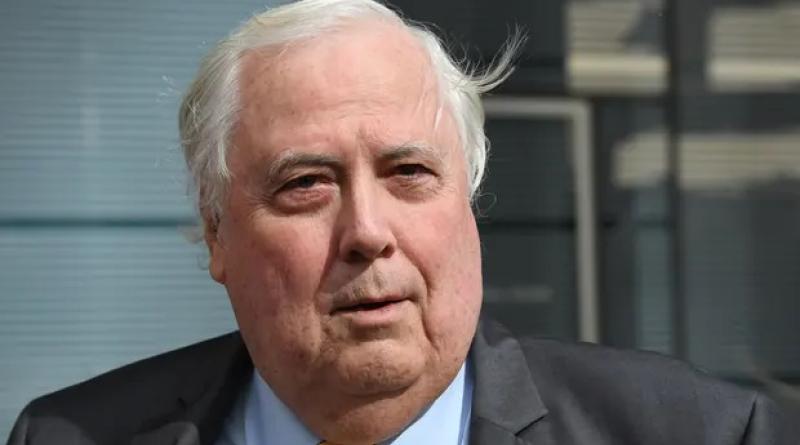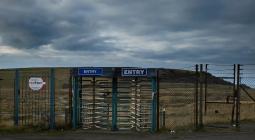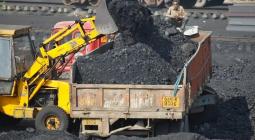Clive Palmer’s coal company seeks to overturn ruling that Queensland mine will harm future generations

Waratah Coal lodges application to overturn recommendation that lease and approvals be refused
A company owned by Clive Palmer is seeking to overturn a landmark ruling that found its plans to dig Australia’s largest thermal coalmine in central Queensland would infringe upon the human rights of future generations and exacerbate the climate crisis.
The coalition that first brought the case court – led by young First Nations women and environmentalists – is vowing to defend last month’s ruling, which they describe as “the most significant decision on climate change and human rights in Australia”.
Waratah Coal lodged an application in the Queensland supreme court on Thursday to overturn the recommendation made by the land court’s president, Fleur Kingham, that the Queensland government refuse to give a mining lease and environmental approval to the Galilee mine.
Kingham agreed with the arguments made by the Environmental Defenders Office, on behalf of Youth Verdict and Bimblebox Nature Reserve, who claimed the 1.58 gigatonnes of carbon emissions Galilee would produce would pose an “unacceptable” risk of climate crisis and was inconsistent with the state’s relatively new Queensland Human Rights Act.
Palmer told Guardian Australia on Friday the decision had sent shock waves through the coalmining sector and threatened the state’s future prosperity.
“A lot of people in the coalmining industry are concerned that this will be a precedent for future operations that will be detrimental to international investment in the coal industry in Queensland and create a lot of unemployment,” he said.
The state’s resources minister, Scott Stewart, said his decision on granting or refusing the mining lease would now be delayed to await a decision by the supreme court.
Waratah’s solicitor, Brendan Tobin, will argue Kingham’s decision-making was littered with errors of law, went well beyond the jurisdiction of her court and was an improper exercise of power.
In a 41-page application for a statutory order of review to quash Kingham’s ruling, Tobin argued the land court president “acted unreasonably in taking into account the impacts of climate change in a hypothetical future world”. He said she had “no evidence” that net greenhouse gas emissions would increase if the mine was approved, nor that they would decrease should it be rejected.
He argued coal from other sources would “continue to supply the market as long as it exists” and that emissions were the responsibility of the countries in which fossil fuels were burned.
Waratah will also challenge Kingham decisions regarding intergenerational equity, her concern that the company’s forecast economic contribution of the mine was optimistic and may result in tax benefits being retained overseas, as well as those regarding a raft of on the ground impacts such as noise, air pollution and subsidence.
He will argue Kingham did not have jurisdiction to inquire into how the proposed mine would affect the legal status of the Bimblebox Nature Refuge as “there is no prohibition on mining on a nature refuge”.
EDO’s managing lawyer, Sean Ryan, said a major climate and human rights fight was looming, as his office prepared to defend what he described as Kingham’s demolition of the “drug dealer’s defence”: “that if they don’t dig up and sell the coal, someone else will”.
“It is not surprising Waratah is seeking to overturn this decision – it must have sent shivers down the spine of the whole fossil fuel industry,” he said.
“For the first time, the land court has rejected an argument fossil fuel companies have used for decades to minimise or deflect responsibility for the harm their products are doing to our climate.
“Demolition of that argument represents a significant threat not just to Waratah Coal’s Galilee Coal Project, but all future fossil fuel proposals in Queensland.”
Youth Verdict co-director Murrawah Johnson vowed to defend the November ruling on behalf of the First Nations peoples “on the frontlines” of the climate crisis.
“It was the first time this court, in accordance with First Nations’ protocols, went out on to Country to hear evidence in a mining objection hearing,” Wirdi said.
“The case has been historic in reconnecting environmental protection and cultural rights of First Nations people through the Queensland land court process and we won’t stop fighting.”
A directions hearing was scheduled for February.
cover photo: Clive Palmer’s Waratah Coal has launched an appeal against a ruling that its plans to dig Australia’s largest thermal coalmine in Queensland would infringe on the human rights of future generations. Photograph: Darren England/AAP





